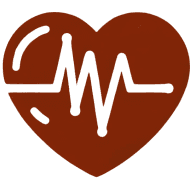What Do Cardiology Professionals Do to Improve Their Cardiac Health?
When cardiology professionals reflect on their personal changes in approach to cardiac health, insights can be as revealing as the conditions they treat. A Consultant Cardiologist kicks off our discussion with a shift toward a holistic heart health approach, and we've gathered five additional answers that range from dietary adjustments to the utilization of modern technology. These responses, culminating in the proactive step of genetic screening for heart risks, provide a unique look into the heart of cardiology from those who know it best.
- Adopt a Holistic Heart Health Approach
- Switch to a Mediterranean Diet
- Engage in Regular Cardio Exercise
- Monitor Health with Wearable Tech
- Learn from Cardiac Health Seminars
- Undergo Genetic Screening for Heart Risks
Adopt a Holistic Heart Health Approach
One significant change I've made in my approach to cardiac health as a cardiologist is prioritizing a more holistic view. While traditional cardiovascular care often focuses on managing risk factors like cholesterol, blood pressure, and diabetes, I've realized that a comprehensive approach is essential for optimal heart health.
Mind-Body Connection: Incorporating stress management techniques like meditation, yoga, and mindfulness into my day-to-day routine has been crucial. Stress can significantly impact heart health, and these practices help manage it effectively.
Healthy Lifestyle: I've become more vigilant about maintaining a healthful diet, regular exercise, and appropriate sleep. These pillars of heart health profoundly influence patient outcomes and personal well-being.
Regular Check-Ups: Even as a healthcare professional, I recognize the importance of maintaining my own preventive care. Regular check-ups, including blood tests, ECGs, and echocardiograms, help identify and manage potential problems early on.
Family History Awareness: My awareness of my family history of heart disease, particularly my father's early heart attack, has motivated me to take proactive steps to protect my heart health.
Continuous Learning: Cardiology constantly evolves, and staying updated on the latest studies and treatment guidelines is essential. Attending conferences, reading medical journals, and participating in online forums helps me stay informed and provide the best possible care to my patients.
By adopting this holistic approach, I've improved my well-being and gained a deeper understanding of the interrelation of physical, mental, and emotional health in preventing and managing heart disease. This perspective has enhanced my ability to guide my patients toward more comprehensive heart care.

Switch to a Mediterranean Diet
Cardiology professionals often commit to heart-healthy diets, such as the Mediterranean one, which is rich in fruits, vegetables, whole grains, and lean proteins. This diet is known to reduce the risk of heart disease due to its emphasis on foods that are low in saturated fats and high in fiber. It discourages the intake of processed foods, red meats, and sugar-laden treats.
Instead, it focuses on the beneficial fats found in nuts, seeds, and olive oil. To take a step towards heart health, consider switching to a Mediterranean style of eating.
Engage in Regular Cardio Exercise
To maintain their cardiac fitness, those in the field of cardiology commonly engage in regular and vigorous cardiovascular exercises. This type of workout strengthens the heart and improves circulation, reducing the likelihood of heart conditions. They often recommend activities like swimming, cycling, or running, which are known to enhance cardiac function.
By increasing the heart rate consistently through exercise, the heart muscle becomes more efficient at pumping blood. Start your own routine to better your heart's health today.
Monitor Health with Wearable Tech
With the rise of technology, cardiology practitioners increasingly rely on wearable tech to keep track of their heart health. Devices such as fitness trackers and smartwatches can measure heart rate, blood pressure, and even detect irregular heartbeats. Not only does this provide real-time data, but it also helps detect potential problems early on.
Wearables can remind users to stay active and monitor their sleep patterns, which are both important for maintaining a healthy heart. Consider using wearable tech to keep a closer eye on your own cardiac health.
Learn from Cardiac Health Seminars
Cardiology professionals often stay informed about the latest in heart care by attending medical seminars and conferences. These events showcase innovative cardiac treatments and prevention strategies that are at the forefront of their field. By learning from peers and leading experts, they can apply groundbreaking methodologies to their own health and to the patients they serve.
This ongoing education is crucial in understanding the complexities of heart health and the most effective approaches to treatment. Invest time in learning more about your cardiac health through such educational forums.
Undergo Genetic Screening for Heart Risks
To preemptively tackle heart health, many cardiologists undergo regular screenings for genetic markers that might indicate susceptibility to heart disease. By identifying these markers early, they can implement lifestyle changes or treatments to mitigate risks. Preventative screening is a proactive measure that can greatly influence one's cardiac health.
Awareness of family history and potential genetic predispositions can guide a tailored health plan. Empower yourself with knowledge and get screened for genetic markers that may affect your heart.

